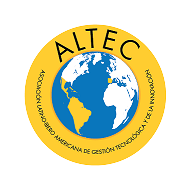| dc.contributor.author | Rangel, Lina Magnolia | |
| dc.contributor.author | Pedraza, Aura Cecilia | |
| dc.contributor.author | León Jaimes, Johana | |
| dc.date.accessioned | 2021-05-27T15:56:02Z | |
| dc.date.available | 2021-05-27T15:56:02Z | |
| dc.date.issued | 2013 | |
| dc.identifier.uri | https://hdl.handle.net/20.500.13048/919 | |
| dc.description.abstract | Las actividades de ciencia, tecnología e innovación son cruciales para los países en desarrollo. Las universidades son una fuente de nuevos conocimientos y sus profesores son los protagonistas. Es necesario motivar continuamente a los académicos a realizar actividades de investigación. Por ello, después de estudiar las teorías de la motivación, factores intrínsecos y extrínsecos que lleva a estas actividades en las universidades y analizar el sistema de incentivos ofrecido a los profesores, se presenta una clasificación de incentivos económicos y no económicos directos e indirectos. A fin de conocer el contexto en el que estamos trabajando, reunimos información acerca de las motivaciones y los factores que les afectan a través de varias fuentes: documentos de políticas universitarias, estudios de investigación, encuestas a los vicerrectores de investigación y profesores. Esto nos lleva a establecer la importancia de alinear el sistema de incentivos a las motivaciones actuales de los académicos. | |
| dc.description.abstract | Science, technology and innovation activities are crucial for developing countries.
Universities are a source of new knowledge and their teachers are the protagonists. In this
sense, it is necessary to continuously motivate academics to pursue research activities. For
that reason, after studying the theories of motivation, intrinsic and extrinsic factors leading
to these activities in universities and analyzing the incentive system offered to professorsresearchers, a classification of direct and indirect economic and non-economic incentives is
provided. In order to know the context in which we are working on, we gathered
information about motivations and the factors affecting them through several sources:
university policy documents, research surveys, semi-structured interviews to vice
chancellors of research and teachers. This lead us to establish the importance of aligning
the incentive system with the existing motivations of academics. | |
| dc.language.iso | spa | |
| dc.rights | info:eu-repo/semantics/openAccess | |
| dc.rights | Atribución-NoComercial-SinDerivadas 2.5 Perú | |
| dc.rights.uri | http://creativecommons.org/licenses/by-nc-nd/2.5/pe/ | |
| dc.subject | Factores conducentes | |
| dc.subject | Actividades de investigación | |
| dc.subject | Educación universitaria | |
| dc.title | Factores Conducentes a la Realización de Actividades de Investigación: El caso de los Profesores Universitarios en Colombia | |
| dc.type | info:eu-repo/semantics/conferenceObject | |
| dc.relation.conferencedate | 27-31 de octubre, 2013 | |
| dc.relation.conferencename | XV Congreso Latino-Iberoamericano de Gestión Tecnológica | |
| dc.relation.conferenceplace | Porto, Portugal | |
| dc.contributor.corporatename | Universidad Industrial de Santander | |


